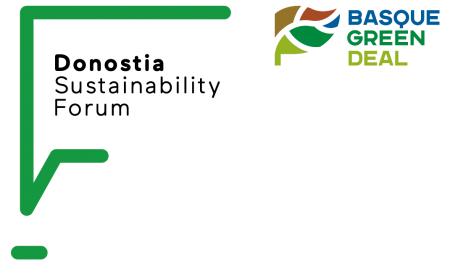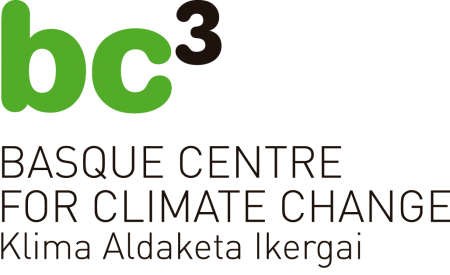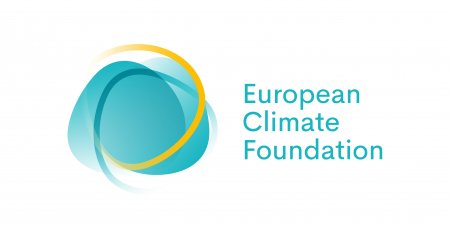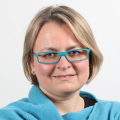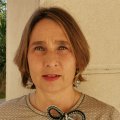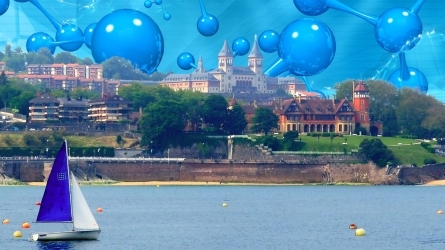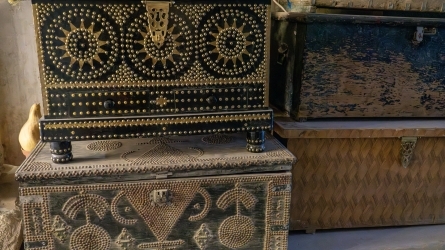
Citizen´s Assemblies, a new wave of citizen´s engagement in Europe
Description
Climate change is often seen as a super wicked problem. Citizen participation can help to increase support for and legitimacy of policy decisions, and in this context citizens' assemblies can be a very appropriate tool to address highly complex problems such as climate change.
Citizens' assemblies are models of non-expert decision-making by a group of randomly selected citizens. The process involves in-depth learning about the topic in question from documentation and expert presentations. The methodology includes facilitating debate and discussion of ideas to reach a set of recommendations for decision-making by the group.
In this workshop, examples of citizens' assemblies carried out in Europe at different scales will be presented in order to learn about the advantages of these processes, as well as the difficulties they face.
Activity directed to
- All public
- University student
- Students not from university
- Teachers
- Professionals
Program
19-05-2023
“Welcome and opening“
- Itziar Azkue Irigoyen | UIK
- María José Sanz Sánchez | Basque Center for Climate Change - BC3 Scientific Director
- Adolfo Uriarte Villalba | Basque Government - Natural Heritage and Climate Change Director
“Keynote: Citizens Assemblies, what we know from recent experiences in Europe: Knowledge Network on Climate Assemblies.“
- Alina Averchenkova | Grantham Research Institute on climate change and the Environment and Knowledge Network on Climate Assemblies (KNOCA)
National and regional experiences I. Moderator: María José Sanz
“The French Climate Citizens Assembly“
- Lise Deshautel | Métropole de Lyon
“Scotland’s Climate citizens assembly“
- Oliver Escobar | University of Edinburgh (Participation by zoom)
Questions
Coffee break
Regional experiences II.
“Baleares Citizens Assembly“
- Pau de Vilchez Moragues | Balearic Islands University (Participation by zoom)
“Gipuzkoa Citizens Assembly“
- Arantxa Mendiharat | Deliberativa
Questions
Round table: “The Spanish Citizens Assembly / Coordination Panel – Maria José Sanz“
- María José Sanz Sánchez | Basque Center for Climate Change - BC3 Scientific Director (Moderator)
- Cristina Monge Lasierra | University of Zaragoza
Group of Independent experts Experts
- Cristina Linares | Instituto de Salud Carlos III (Participation by zoom)
Ministry of Ecological transition
- Francisco Heras | Spanish Climate Change Office
Facilitación Team
- Conchi Piñeiro (Participation by zoom)
- Laura Lucio Gonzalez
Citizen's representatives
- Lola Bueno
- Nuria Borda
- George J. Droda
Closing remarks - María José Sanz
Speakers
Dr. Alina Averchenkova is a Distinguished Policy Fellow at the Grantham Research Institute on Climate Change and the Environment at the London School of Economics and a visiting Senior Fellow at the Royal Elcano Institute. With extensive experience on climate change and international development, Alina’s current work focuses on climate change governance and legislation around the world and capacity building and advisory to governments, parliaments, and international organisations on these issues. She is a founding member of the Knowledge Network on Climate Assemblies (KNOCA). Her experience includes international consultancy KPMG, the United Nations Framework Convention on Climate Change, a carbon asset manager First Climate and the Environmental Defence Fund. Alina holds a PhD in Economics and International Development from the University of Bath.
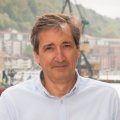
Adolfo Uriarte Villalba
Director de patrimonio Natural y Geólogo y oceanógrafo
BSc. In Geology, University of the Basque Country (Spain), Msc. and PhD. in Oceanography, University of Southampton (U.K.). Has lead and collaborated in many projects, both at national and international level being specialized in sedimentology and morphodynamics. Is author of multiple scientific and technical national and international publications, as well as of many technical reports and international congress presentations. At present leads the value assessment of the different technological assets developed within the organization, being responsible of the transference of technical and scientific knowledge to the private and public sectors. Is member of the Basque Environmental Advisory Council of the Basque Government , of the Committee of experts of the UNESCO Chair for the Reserve of Urdaibai and permanent member of the board of the Spanish Port and Coasts Engineers' Conference.
Doctora en Ciencias Económicas y Empresariales. Profesora Titular de Universidad de la UPV/EHU, departamento de Economía Financiera I Profesora titular de la Facultad de Economía y Empresa - Sección Gipuzkoa. Experiencia académica universitaria de 30 años en Grado y Postgrado. Sus áreas de especialización son la contabilidad, la auditoría de cuentas y el ámbito de la Administración Pública. Es miembro de la Comisión de ADE Dual y tutora de prácticas en empresa. Así mismo, ha sido miembro de la Comisión Académica del Master de Gestión del Deporte (2018-2022) y, actualmente es Subdirectora Académica de los Cursos de Verano de la UPV/EHU. ORCID iD: https://orcid.org/0000-0001-6688-2323
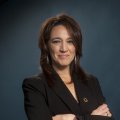
Cristina Monge Lasierra
Universidad de Zaragoza, Globernance, ItdUPM y BC3
Cristina Monge es politóloga y doctora por la Universidad de Zaragoza, donde imparte clases de sociología. Sus áreas de interés son la sostenibilidad y la calidad democrática, y en especial la gobernanza para la transición ecológica, asunto que trabaja en centros de investigación como Globernance, el BC3 y el itdUPM, o en el patronato de Ecodes. Forma parte del consejo asesor de Llorente y Cuenca y de la revista Ethic. Desde 2018 participa en el Foro de Gobierno Abierto, desde 2019 en el Consejo Asesor de Cooperación al Desarrollo, y desde su creación en el Grupo asesor metodológico del proyecto de rendición de cuentas de la presidencia del gobierno de España, “Cumpliendo”. Es autora de “15M: Un movimiento político para democratizar la sociedad” (2017), y ha coordinado la obra colectiva “Tras la indignación. 15M: Miradas desde el presente” (2021). Coautora junto con Raúl Oliván de “Hackear la Política” (2018), y con JJ Verón de “La Iniciativa Social de Mediación de los conflictos del agua en Aragón” (2019), es también co-editora de la colección “Más Cultura Política, Más Democracia”, en colaboración con Gedisa y preside la Asociación “Más Democracia”.
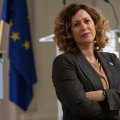
Cristina Linares
Cristina Linares Gil es Doctora en Medicina Preventiva y Salud Pública por la Universidad Autónoma de Madrid. Actualmente desarrolla su actividad profesional como Científica Titular y Codirectora de la Unidad de Referencia en Cambio Climático, Salud y Medio Ambiente Urbano de la Escuela Nacional de Sanidad en el Instituto de Salud Carlos III. Forma parte del Grupo de Trabajo II del VI Informe de Evaluación del IPCC en el campo de “Impactos del Cambio Climático en la Salud Humana”; ha sido Lead Author del capítulo sobre Salud y Cambio Climático de la Red “Mediterranean Experts on Climate and Environmental Change” que ha recibido el Premio Norte Sur del Consejo de Europa 2020; autora en informes científico-técnicos de Naciones Unidas (UN Enviroment) y la Organización Mundial de la Salud. Ha sido Coordinadora del Grupo de Expertos en la primera Asamblea Ciudadana por el Clima de España.
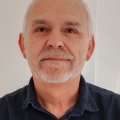
Francisco Heras
Francisco Heras Hernández es biólogo ambiental por la Universidad Autónoma de Madrid (1985) y doctor por la misma universidad con la tesis “Representaciones sociales del cambio climático en España: aportes para la comunicación”. En la actualidad desarrolla su actividad profesional en la Oficina Española de Cambio Climático, centrado en temas relativos a los impactos y la adaptación al cambio climático. Entre 2001 y 2016 fue coordinador de Educación en el Centro Nacional de Educación Ambiental. Desde 2004 coordina el seminario permanente “Respuestas desde la comunicación y la educación frente al cambio climático”. Es autor de numerosos libros y artículos sobre comunicación, educación y participación ambiental, así como sobre la percepción social y la comunicación del cambio climático.
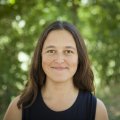
Conchi Piñeiro
Socia cofundadora de la Cooperativa Altekio Iniciativas hacia la sostenibilidad (entidad socia de Tangente Grupo Cooperativo). Actualmente compatibiliza su puesto como Delegada del Patronato de FUHEM. Doctora en Educación Ambiental, Licenciada en Ciencias Ambientales. Facilitadora experta. Ha coordinado la facilitación de la Asamblea Ciudadana para el Clima.

Laura Lucio Gonzalez

Lola Bueno

Nuria Borda

George J. Droda
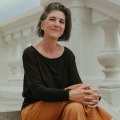
Arantxa Mendiharat
Deliberativa
Co-founder with Yago Bermejo of Deliberativa, an organisation that advises governments to design and implement deliberative processes involving citizens chosen through civic lottery, and promotes deliberative democracy. Co-author with Ernesto Ganuza of the book "La democracia es posible. Sorteo cívico y deliberación para rescatar el poder de la ciudadanía" ("Democracy is possible. Civic lottery and deliberation to reclaim the power of citizens" (2020, Ed. Consonni). She is a member of FIDE (Federation for Innovation Democracy - Europe), Democracy R&D, Innovative Citizen Participation Network of the OECD and KNOCA. In a previous life she designed and activated crossovers between the arts and other fields of production. She is still closely following the project she created together with Idoia Zabaleta and Ixiar Rozas, Borradores del futuro (Drafts of the future), a collection of stories that imagine the future of existing alternatives. Graduated in Political Science from the Institut d'Etudes Politiques de Bordeaux (France). Holds a Master's degree in Arts Management from Heriot-Watt University in Edinburgh. Lives in Bilbao.

Pau de Vilchez Moragues

Oliver Escobar
Dr Oliver Escobar is Senior Lecturer in Public Policy at the School of Social and Political Science of the University of Edinburgh; Academic Lead on Democratic Innovation at the Edinburgh Futures Institute; Co-director of CRITIQUE (Centre for Ethics and Critical Thought); and member of the National Expert Group on Digital Ethics. He is co-investigator in the projects European Smart Urban Intermediaries and Distant Voices, and a former director of What Works Scotland. Oliver works on participatory and deliberative democracy, with a focus on political inequalities and the governance of the future. He combines research and practice to develop social and democratic innovations across various policy and community contexts. He recently co-led the research programme for the Citizens’ Assembly of Scotland and is on the Stewarding Group for Scotland’s Climate Assembly. Oliver’s work has been shared in seventy publications, including the Handbook of Democratic Innovation and Governance, and over fifty training courses on public engagement for students and practitioners across the public sector and civil society. Before academia, Oliver worked in literature, radio, retail, fishing, and construction.

Lise Deshautel
Venue
Miramar Palace and streaming (Zoom)
Gipuzkoa
Miramar Palace and streaming (Zoom)
Gipuzkoa
